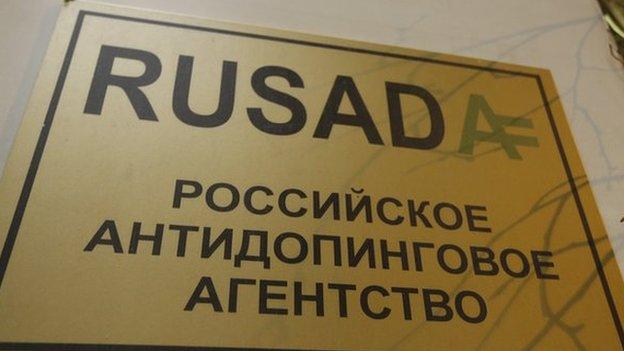Russia doping scandal: Athletes face potential ban from global sport
- Published
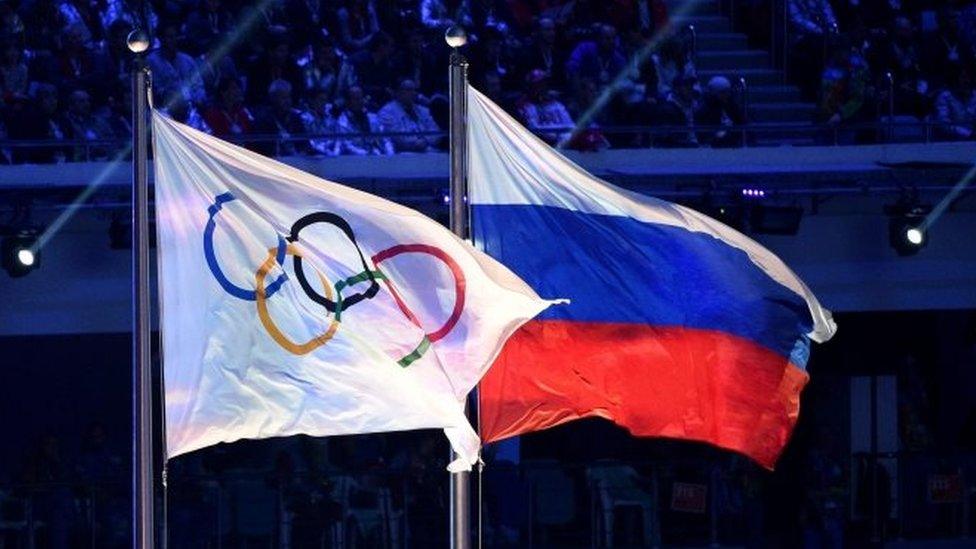
Russian athletes could be banned from the Olympics in Tokyo and Beijing
Russia could face an unprecedented four-year ban from major international sporting events over accusations that it manipulated laboratory doping data.
The decision will be made later at a meeting of the World Anti-Doping Agency (Wada) in Lausanne, Switzerland.
Russia could be banned from the 2020 Tokyo Olympics and 2022 Beijing Winter Olympics. It could also be ruled out of the 2022 Football World Cup in Qatar.
The country's sports minister refused to comment ahead of the ruling.
Before the Lausanne meeting, members of Wada's Athletes Committee demanded a blanket ban on Russian athletes competing at the Olympics.
Even if Wada backs the four-year ban, Russia will be able to compete at the Euro 2020 football championship. St Petersburg will also remain as one of the host cities at next summer's tournament.
What is Russia accused of?
Earlier this year, Wada's Compliance Review Committee (CRC) declared the Russian Anti-Doping Agency (Rusada) non-compliant over inconsistencies in a key database of athletes' test results.
Rusada boss Yuri Ganus has since confirmed that someone altered or deleted "thousands" of entries.
Russian Sports Minister Pavel Kolobkov avoids questions from the BBC's Sarah Rainsford
Russian Sports Minister Pavel Kolobkov last week refused to comment on the issue, telling a BBC correspondent to wait for the outcome of the Lausanne meeting.
Full disclosure of testing data from a laboratory in Moscow was a key condition of Wada's controversial decision last year to lift a three-year suspension of Russia's anti-doping agency over a vast state-sponsored doping scandal revealed by a scientist-turned-whistleblower.
Authorities were accused of helping to cover up drug abuse, including while Russia hosted the 2014 Sochi Winter Olympics.
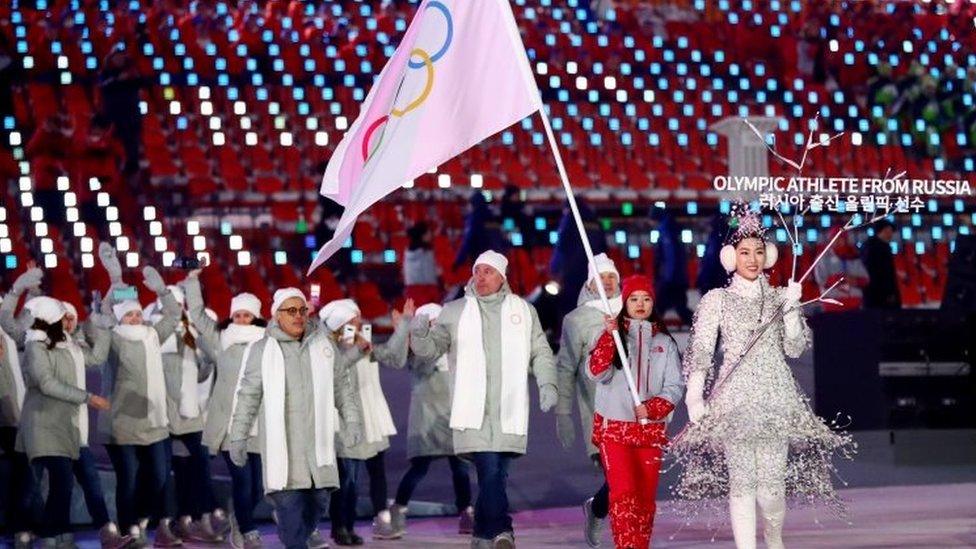
Only selected athletes were allowed to compete as "Olympic Athletes from Russia" at the PyeongChang Olympics in 2018
Russia was banned from taking part in last year's PyeongChang Winter Olympics in South Korea, although athletes who could prove they were clean were allowed to compete under a neutral flag.
What penalties could Russia face?
The Wada Compliance Review Committee recommended a raft of measures:
Russia may not host, or bid for or be granted the right to host any major events for four years
Russia may not bid for the right to host the 2032 Olympic and Paralympic Games, irrespective of whether the bidding takes place during or after the four-year period
The country's flag may not be flown at any major event staged in the four-year period
Russian athletes and their support personnel may only participate in major events staged in the four-year period where they are able to demonstrate that they are not implicated in any way by the non-compliance. In such circumstances these athletes would compete as neutrals
Where the right to host a major event in the four-year period has already been awarded to Russia, the signatory must withdraw that right and re-assign the event to another country, unless it is legally or practically impossible to do so
Yuliya Stepanova talks to the BBC for the 100 Women season about the cheating, cover-ups and life on the run.

- Published6 December 2019
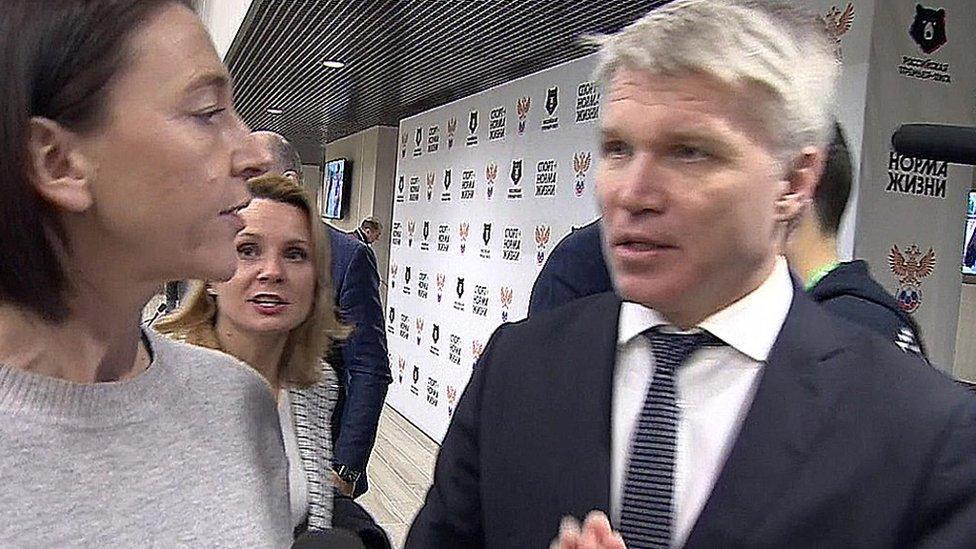
- Published8 December 2019
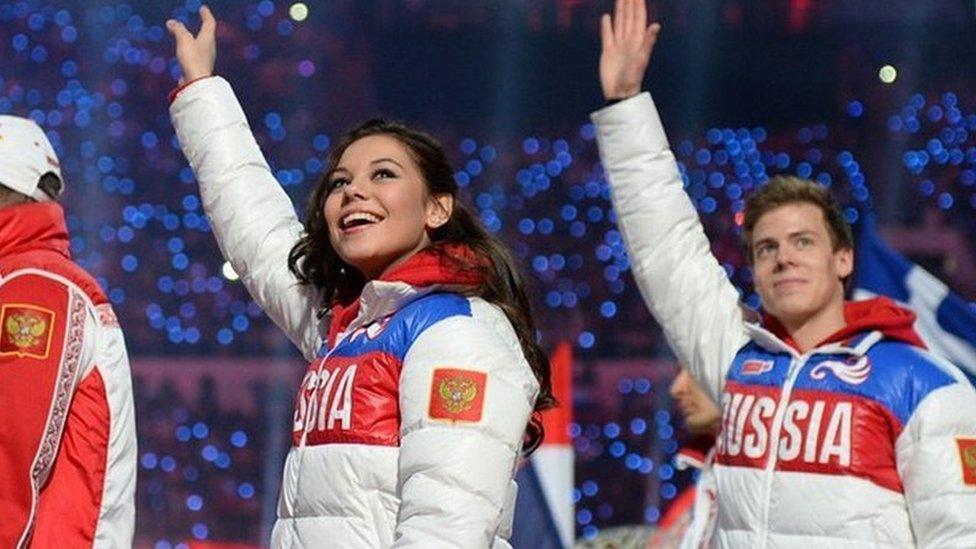
- Attribution
- Published8 December 2019
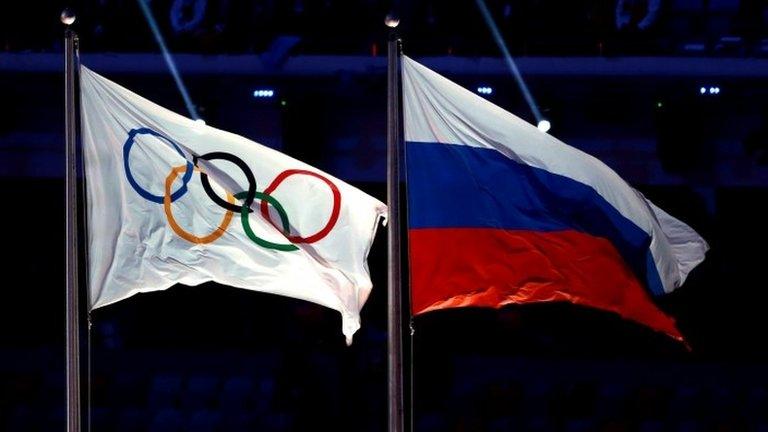
- Attribution
- Published26 November 2019
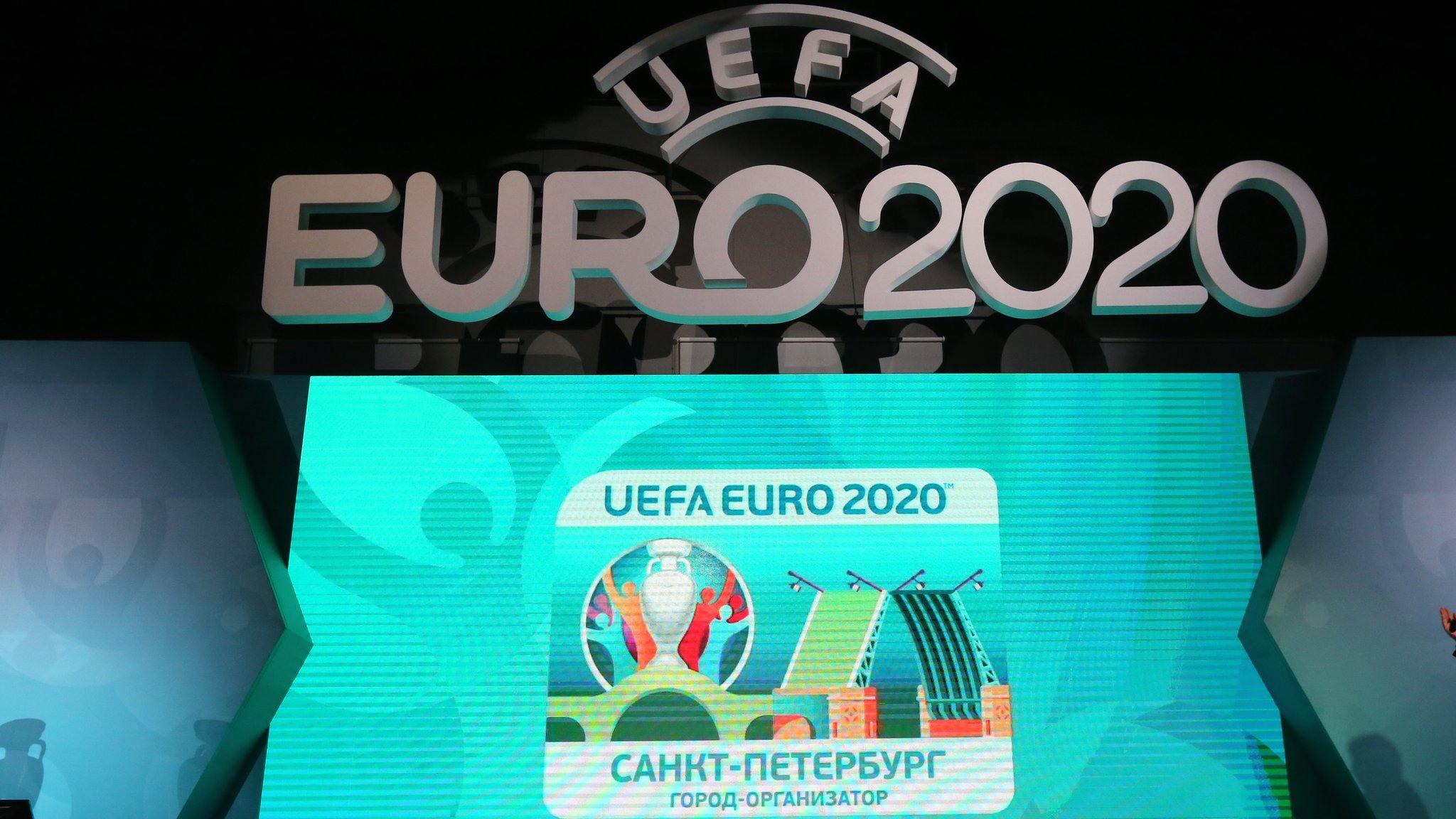
- Attribution
- Published27 November 2019
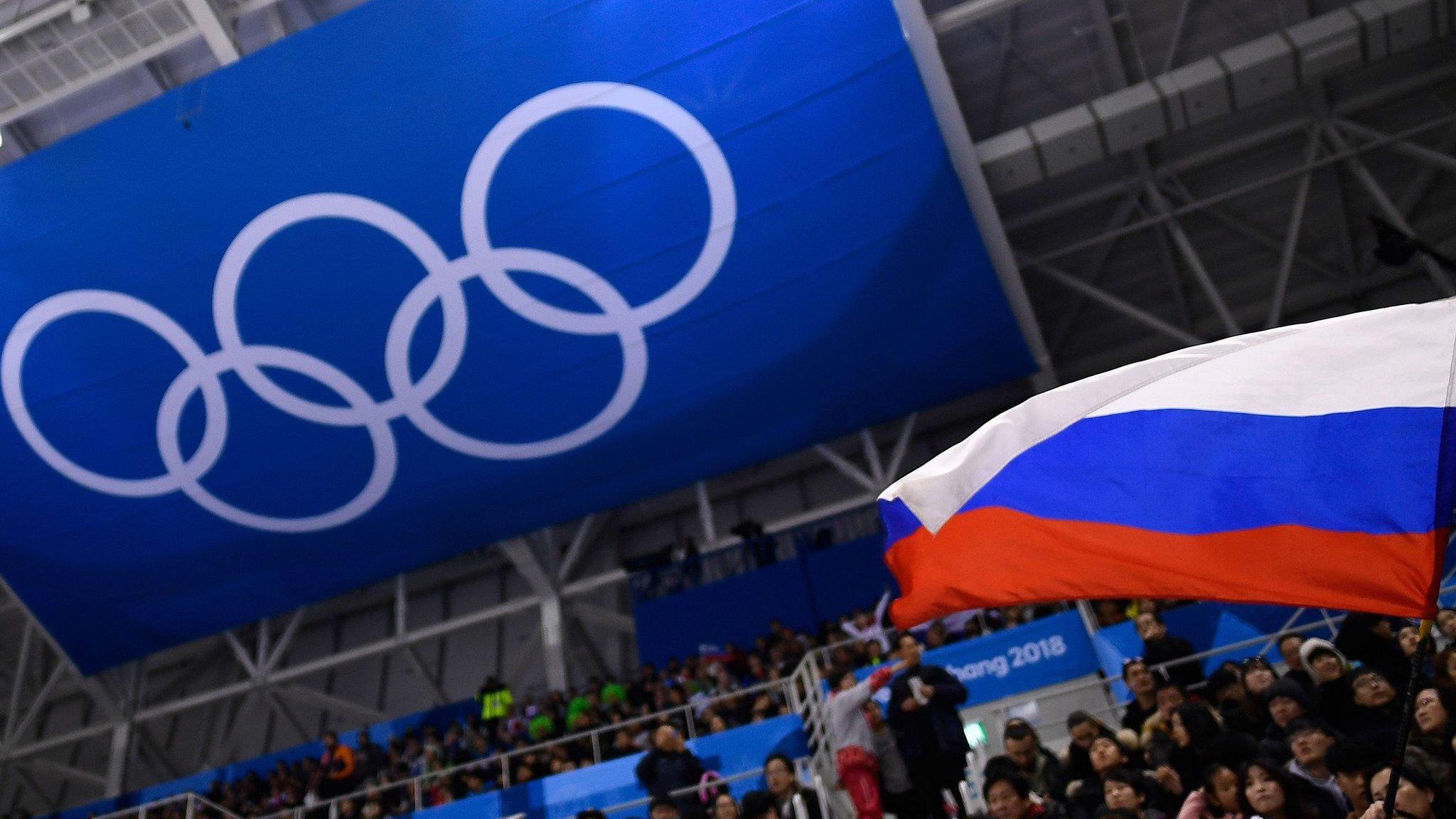
- Attribution
- Published23 September 2019
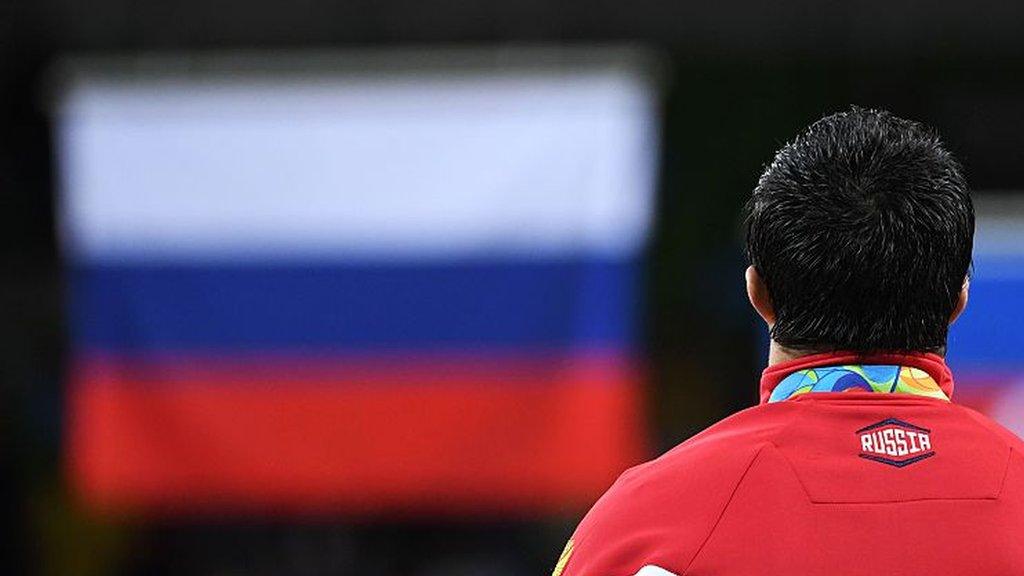
- Attribution
- Published30 April 2019
